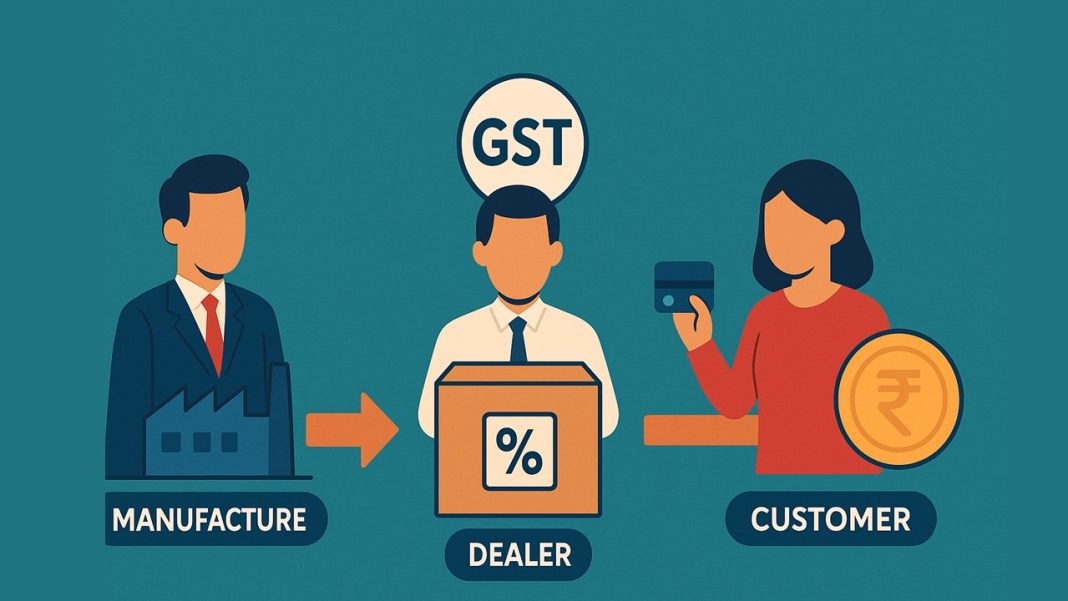CBIC Clarifies GST Rules on Post-Sale and Secondary Discounts; Detailed Guidelines Issued
The Central Board of Indirect Taxes and Customs (CBIC) under the Government of India (Ministry of Finance) has recently issued a circular, No. 251/08/2025-GST, dated September 12, 2025, addressing the Principal Chief Commissioners/Chief Commissioners of Central Tax (All) and the Principal Director Generals/Director Generals (All). The circular clarifies various doubts from businesses about how secondary discounts/post-sale discounts should be treated under GST.
The Central Board of Indirect Taxes and Customs (CBIC) in the circular claimed that there had been numerous representations seeking clarifications in respect of tax treatment in cases of secondary discounts or post-sale discounts. Such discounts are generally given by manufacturers or suppliers after the sale has already taken place.
CBIC made these clarifications to avoid confusion and ensure GST rules are uniformly applied across the country in exercise of its powers granted under sub-section (1) of section 168 of the Central Goods and Services Tax Act, 2017 (hereinafter referred to as “the CGST Act”). The following are the clarifications:
“Question 1: Whether the full input tax credit is available to the recipient of supply when the recipients make discounted payments to the supplier of goods on account of financial/commercial credit notes issued by the said supplier?”
Clarification: Section 16(1) of the CGST Act says that claiming ITC is allowed to every registered person on the tax charged on goods/services used in business. In an earlier circular (No. 92/11/2019-GST dated March 07, 2019), it was already clarified that a supplier can issue a financial/commercial credit note but cannot reduce their GST liability on such notes. Since the supplier’s tax liability does not reduce, the buyer’s ITC also does not reduce.
Therefore, the buyer is allowed to keep full ITC, even though he has paid a lower amount to the supplier because of such discounts.
“Question 3: Whether a post-sale discount offered by a manufacturer to its dealer/distributor would be treated as a consideration paid by the manufacturer for the dealer’s supply of the same goods to the end customer, as a monetary value of the inducement to supply goods manufactured by him to the end customer?”
Clarification: Section 2 (31) of the CGST Act, 2017 says that “consideration” can also mean the value of any act done to promote or induce a supply. But here, in a normal case, there are two separate sales: one from the manufacturer to the dealer and the other from the dealer to the end consumer. Once the manufacturer sells to the dealer, ownership passes fully to the dealer. The manufacturer no longer controls those goods. The dealer then sells them independently on a principal-to-principal basis.
So, if a manufacturer later gives a discount to the dealer, this is only to reduce the price (to stay competitive in the market). It is not a separate payment or inducement for the dealer to sell. Therefore, such post-sale discounts are not considered “consideration”, and GST is not applied as if they are payments for the dealer’s sale.
Here in this concept, there is also an exception: if the manufacturer has a direct agreement with the end customer (for example, the manufacturer promises the customer a lower price), then the manufacturer may give a commercial/financial credit note to the dealer so that the dealer can sell to the customer at that promised discount. In these types of cases, the discount is linked to the supply to the end customer. So, it becomes a part of the overall consideration and is treated as an inducement towards the dealer’s supply.
Refer to the official circular for the complete questions asked in distinct representations and the clarifications given by CBIC on them.



